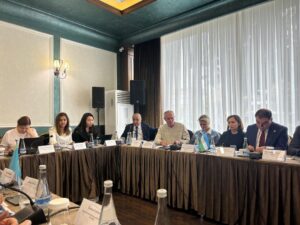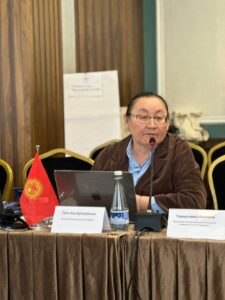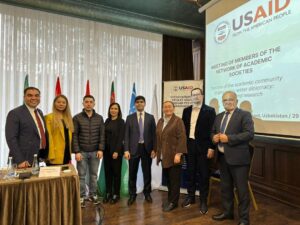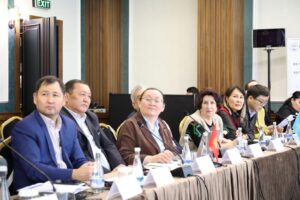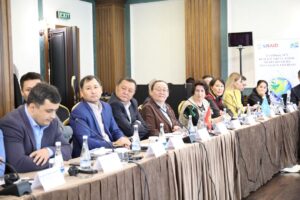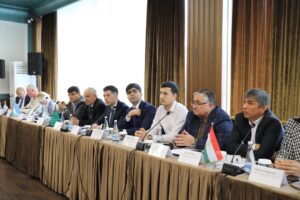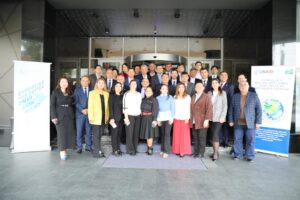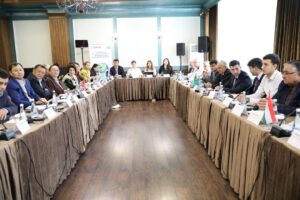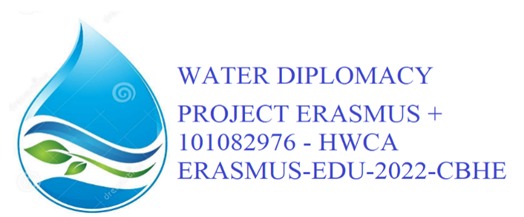DA MFA of the Kyrgyz Republic, NRU TIIAME RU, UMED RU, APA RT, APA RK – the members of the consortium of the Erasmus + HWCA project (Strengthening Higher Education in the Water Sector for Climate Resilience and Security in Central Asia), being implemented with the support of the European Commission, took part on October 29, 2024 in Tashkent, Republic of Uzbekistan, at the meeting of the members of the Network of Academic Communities of Central Asia – Community of Practice (CoP). The meeting was organized by the USAID Regional Water and Environment Project and the Central Asian Regional Environmental Center.
At the meeting, the partner universities of the Erasmus+HWCA project shared with the members of the CoP their experience in the development and implementation of MA/MS courses and programs on water governance and water diplomacy. The Erasmus+HWCA project also plans to introduce a regional program for continuous professional development and mobility in order to increase the academic and research capacity of teachers, reseachers and other stakeholders of Central Asian universities on water governance and water diplomacy.
The Network of Academic Communities was organized in 2012. Within the framework of the Network, meetings are regularly held at which thematic issues are discussed, knowledge is exchanged between representatives of educational institutions in the field of environmental, water, land and energy management. The aim of these meetings is to develop measures to improve the management of natural resources through science and education. NAC provides universities with the opportunity to collaborate with international and regional experts, develop and improve educational courses, and train faculty in new approaches and tools to ensure a unified approach in building the capacity of future specialists in water and related fields in the region.
